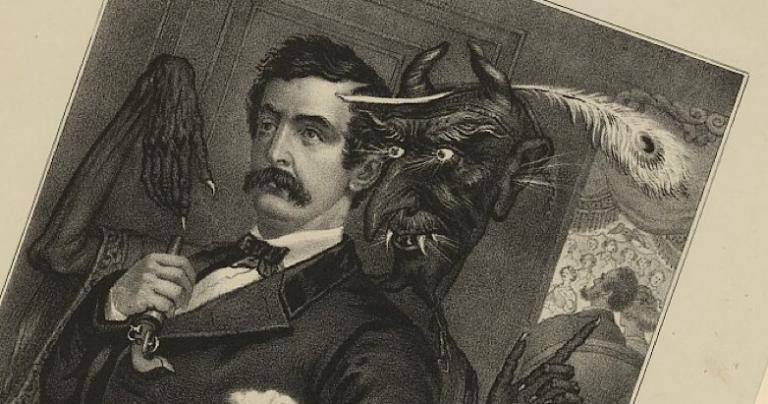Unless you are Stalin, Mao, or a few other people in history, nobody deserves to be called Hitler. He was very bad, not quite uniquely bad, but close. How bad? To call him monstrous is true, but he was no monster really. He was human and that should wake us up.
When I was a boy, the men of the World War II generation told me what they got from the trials of Nazi leaders at Nuremberg was how (in some ways) boring and normal the men who did monstrous acts were. I was taught a phrase “the banality of evil.”
Evil is not banal, it is horrific, but the men who did evil were not as different from us as we might have hoped: they were banal. The people who kept the horrific system going were office workers, clerks, railroaders. Many of them, I am told, were “nice”enough when not running a Final Solution. 
People do bad things, a few are deeply mentally disturbed and perhaps cannot help themselves (such as the sociopath), but the great evils of Mao, Hitler, and Stalin had the cooperation of people like we are.
Nobody would complain very much if we called Hitler a monster, but we should recall two truths. First, (at least for Christians) hate is not an option. We can demand and execute justice, but not in hatred. This is very hard and I certainly am not judging anyone who could not reach this ideal with a man like Hitler. Yet the ideal is there and it prevents us from torture or other evil acts as we pursue a righteous cause. Hate quickly can transform what was good to what is bad.
Second, Hitler was a human being who began with a soul created in the image of God. He could (so far as we can tell) have chosen differently.
We can acknowledge his unique evil while admitting he was one of us: Hitler was just a man, a most evil man.
Thankfully, in real life there are few who choose so badly who also get the power of a Mao, Stalin, or Hitler. These are very bad people, but they are still people. Why stress this?
One kind of great wickedness begins by labeling some group of people as “not people.”
No man is so wicked he is not a man. Wicked men all find people they think are beyond humanity. There is moral danger for us if we lightly label or consistently refer to criminals or others as “animals”, “devils”, or some other dehumanizing term. If we have rightly recognized evil, then we might have given ourselves a bad sort of permission: we can behave inhumanely to some humans. We might construct prisons that no longer punish appropriately, but exact inhuman revenge on “them.”
And of course, we must beware, because labeling “them” as beyond humanity has not always been restricted to behavior. “Those” people become the Jews, the aristocrats, the farmer with some extra cabbage, or just a weird neighbor. Begin dehumanizing prisoners or criminals and soon the state might make criminals of foes and use our bad habits to do great evil. This happened in the twentieth century and happens today.
Of course, we need not become hyper-sensitive.
An insult can be appropriate if done lightly: don’t eat like a pig! However, too much of an insult, repeating the same term too often, can reduce a person in our mind to a pig: fit to be slaughtered. Given our history, humankind should be very careful about overuse of dehumanizing insults. The more powerful a person is the less they should set a pattern of dehumanization.
A prophetic insult generally goes from a weak person to a more powerful class or group. That is not a bad rule of thumb . . . prophets do not punch down.
Great evil must be labeled as evil and called out, but the humanity of all can never be forgotten, even of the evil men, or we will fall into the very pattern of thought of the evil men.











